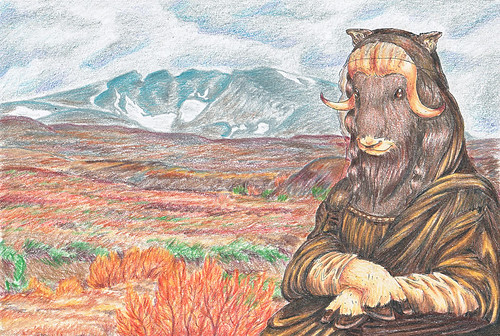
Mona "Muskox" Lisa
What do you know: It’s the last update of February! Time sure flies when you are having fun or…are the gravitational waves getting stronger and stronger??? Whatever the reason: Today it is time to treat yourself to something special ! Treat yourself to something super amazing to spin: the IxCHel Tundra blend with yes,,,wait for it: Qiviut !!
Qiviut is the name of the wool that comes off of the Musk Ox, a gentle giant of a creature often found in Alaska. Once hunted to the brink of extinction, Musk Ox are now considered to have the most precious, softest fiber in the world. Eight times warmer than wool and finer than cashmere, qiviut is rare and it is one of the most luxurious fibres you can choose for a garment.
The softness of Qiviut is something that must be touched to be believed! Qiviut is not only soft, it is also non-irritating to the skin, and is very durable - garments made from it are worn for years and can be hand washed in mild detergent. It retains warmth even when wet.
The lightweight fibre preserves heat in the winter, while also providing cool, breathable comfort in warmer weather. This fibre has been carefully gathered by hand and no animals were harmed in the gentle shedding of it. This fibre generally sells for anywhere between $35-$56/28grams/oz, and skeins of yarn often sell for over $100-200 each!! Fibre count is 100s+ (12-15 micron)!!!
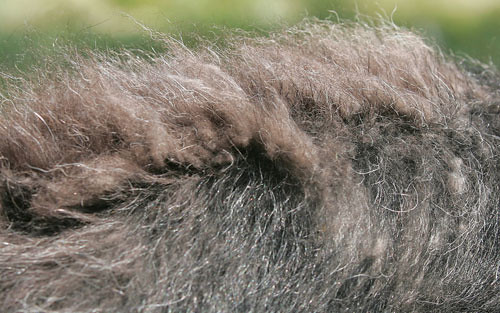
Qiviut is the name of the wool that comes off of the Musk Ox, a gentle giant of a creature often found in Alaska. Once hunted to the brink of extinction, Musk Ox are now considered to have the most precious, softest fiber in the world. Eight times warmer than wool and finer than cashmere, qiviut is rare and it is one of the most luxurious fibres you can choose for a garment.
The softness of Qiviut is something that must be touched to be believed! Qiviut is not only soft, it is also non-irritating to the skin, and is very durable - garments made from it are worn for years and can be hand washed in mild detergent. It retains warmth even when wet.
The lightweight fibre preserves heat in the winter, while also providing cool, breathable comfort in warmer weather. This fibre has been carefully gathered by hand and no animals were harmed in the gentle shedding of it. This fibre generally sells for anywhere between $35-$56/28grams/oz, and skeins of yarn often sell for over $100-200 each!! Fibre count is 100s+ (12-15 micron)!!!

the Qiviut (down of the musk ox) peeking through the guard hairs
The mighty muskox (Ovibos moschatu) is a survivor from the ice age. Possessing powerful curved horns, which hang down like side bangs from a helmet-like skullcap, muskoxen are actually more closely related to sheep and goats than to cattle and oxen (although all of the above are members of the Bovidae family).
Adult muskoxen weigh from 180 to 400 kg (400 to 900 pounds) but they look much larger on account of their thick coats and large heads. Once muskoxen proliferated throughout the northern hemisphere alongside woolly mammoths, but hunting and habitat loss caused them to retreat further and further into the remotest parts of the north until the end of the nineteenth century when the animals could only be found in the unpopulated wilderness and empty islands of northern Canada and deep in the arctic vastness of Greenland. In these remote locations tiny herds of one to two dozen muskoxen still subsist on grasses, willows, lichens and moss while contending with terrible arctic predators and fearsome cold.
Fortunately the muskox is provisioned with fearsome horns and doughty neighbours to fend off polar bears and wolves. The herd is capable of assembling in a ring formation with horns outward to stand off wolves and ice bears (although such a strategy works less well against humans with our projectile weapons). To fight the cold, the muskoxen have fat reserves and one of the most remarkable insulating coats in the animal world.
A muskox’s coat is divided into two layers: a long stringy layer of coarse outer wool and an inner layer of soft warm undercoat called qiviut (this Inuit word now primarily denotes muskox wool but it was once also used to refer to similarly soft warm inner down of arctic birds). Qiviut is one of the world’s premier luxury fibres: it is allegedly 8 times more effective at insulation than sheep’s wool and yet is softer than cashmere.
The Musk Ox survived when the other greats of the Pleistocene – woolly mammoth, mastodon, sabertoothed cats, giant sloth – all went away. And it returned to Alaska by way of New York Harbour. Now, it turns out, the musk ox could again be the great survivor in our new Arctic age of extinction. Ross MacPhee, a curator in the department of mammalogy at the American Museum of Natural History in New York City, says the musk ox’s homogenous genetic makeup suggests it has been through population stress before and can survive boom-and-bust cycles.
“What we find with living musk oxen is they’re not exactly clones, but they’re so amazingly similar that there’s only one explanation,” MacPhee says. “And that explanation is that they had to have had a very severe pinch on their populations. We estimate that that happened about ten thousand years ago.” But that doesn’t mean it’s all good news for the cold-weather beast, which is most closely related to goats and sheep and can weigh up to 800 pounds. The pace of these changes could challenge even an animal as resilient as the musk ox, scientists say.
Brendan Kelly, an Arctic ecologist and research scientist for the National Oceanic and Atmospheric Administration, says all Arctic species are currently endangered by the rapid speed of climate change. “For organisms to adapt – whether it’s changing body size, or changing the timing that they have their calves, and hence can match when the plants are most nutritious – it really depends on the rate of the environmental change relative to the generation time of the organism,” Kelly says. “So if there’s a really, really rapid environmental change, it’s very hard for there to be an adaptive response.”
As I was reading about Musk Ox I found out that all of the muskox at the Myskoxcentrum in Härjedalen, Sweden, came from Ryøya, near Tromsø, Norway. What?!? Muskox on Ryøya? I knew about the Dovrefjell group and an attempt to introduce muskox on Svalbard, but I had never heard of a group in northern Norway. The search was on.
It turns out that there is a flock of more 40+ animals now running around free on a small island named Ryøya off the coast of Tromsø. NRK’s Ut i naturen television program made a 24-minute show about “Moskusøya” (“Muskox Island”) in 2006. Unfortunately the show is in Norwegian, but even if you don’t speak Norwegian, it’s still worth watching for a while if you want to see muskox running around and scientists trying to catch them. In the Ut i naturen program, we also get to see some historic television clips from the 1960s when the muskox first came to Troms.
In 1969, 25 muskox calves arrived in northern Norway via boat from Greenland. The idea was to raise muskox for their wool as domesticated livestock. The University of Fairbanks in Alaska had some kind of research project related to muskox husbandry (I haven’t looked into that yet) and the idea was transferred to Norway.
The undercoat wool of muskox, known as qiviut, is a highlyvaluable wool: it is warmer than wool, finer than cashmere and hypoallergenic. Sounds like the perfect winter clothing material, except that muskox are pretty rare and not widely domesticated – which makes it a very, very expensive material
In 1969, the herd was established at a farm in Bardu with the hope that eventually every farm in the area could have 2-3 muskox for a meaningful supplementary income. But by 1975, calls for the end of muskox experiment were being made. According to media reports, a hunter was killed by a muskox and the muskox population was being devastated by a virus (hmmm, sounds familiar, right?). So in 1976, the herd was moved to northern Troms, and five years later, the Tromsø University is taking care of them to preserve the species.
The Department of Arctic and Marine Biology took over the herd and moved them to Ryøya to study their behaviour and adaptation as arctic animals. Muskox as livestock in Norway didn’t work out, but who knows what the future holds. The Qiviut are still here.
If you watch the TV program, you’ll see that while the scientists herd the muskox to collect measurements and/or for transportation to the overwintering station on the mainland, they quickly pull out the qiviut, which they sell to support their research. Qiviut is a bonus of having muskox in Norway — if you can catch them.
Well , don’t you worry I caught some of it for you !! to support the musk ox population growing not only on the American continent but also in other habitats that are good for them. This will enable the species to grow, get stronger, adapt and hey, probably outlive us all, since they already did that to the woolly mammoth.
Don’t worry, if I EVER find a woolly mammoth, I will share its wool with all of you …

The mighty muskox (Ovibos moschatu) is a survivor from the ice age. Possessing powerful curved horns, which hang down like side bangs from a helmet-like skullcap, muskoxen are actually more closely related to sheep and goats than to cattle and oxen (although all of the above are members of the Bovidae family).
Adult muskoxen weigh from 180 to 400 kg (400 to 900 pounds) but they look much larger on account of their thick coats and large heads. Once muskoxen proliferated throughout the northern hemisphere alongside woolly mammoths, but hunting and habitat loss caused them to retreat further and further into the remotest parts of the north until the end of the nineteenth century when the animals could only be found in the unpopulated wilderness and empty islands of northern Canada and deep in the arctic vastness of Greenland. In these remote locations tiny herds of one to two dozen muskoxen still subsist on grasses, willows, lichens and moss while contending with terrible arctic predators and fearsome cold.
Fortunately the muskox is provisioned with fearsome horns and doughty neighbours to fend off polar bears and wolves. The herd is capable of assembling in a ring formation with horns outward to stand off wolves and ice bears (although such a strategy works less well against humans with our projectile weapons). To fight the cold, the muskoxen have fat reserves and one of the most remarkable insulating coats in the animal world.
A muskox’s coat is divided into two layers: a long stringy layer of coarse outer wool and an inner layer of soft warm undercoat called qiviut (this Inuit word now primarily denotes muskox wool but it was once also used to refer to similarly soft warm inner down of arctic birds). Qiviut is one of the world’s premier luxury fibres: it is allegedly 8 times more effective at insulation than sheep’s wool and yet is softer than cashmere.
The Musk Ox survived when the other greats of the Pleistocene – woolly mammoth, mastodon, sabertoothed cats, giant sloth – all went away. And it returned to Alaska by way of New York Harbour. Now, it turns out, the musk ox could again be the great survivor in our new Arctic age of extinction. Ross MacPhee, a curator in the department of mammalogy at the American Museum of Natural History in New York City, says the musk ox’s homogenous genetic makeup suggests it has been through population stress before and can survive boom-and-bust cycles.
“What we find with living musk oxen is they’re not exactly clones, but they’re so amazingly similar that there’s only one explanation,” MacPhee says. “And that explanation is that they had to have had a very severe pinch on their populations. We estimate that that happened about ten thousand years ago.” But that doesn’t mean it’s all good news for the cold-weather beast, which is most closely related to goats and sheep and can weigh up to 800 pounds. The pace of these changes could challenge even an animal as resilient as the musk ox, scientists say.
Brendan Kelly, an Arctic ecologist and research scientist for the National Oceanic and Atmospheric Administration, says all Arctic species are currently endangered by the rapid speed of climate change. “For organisms to adapt – whether it’s changing body size, or changing the timing that they have their calves, and hence can match when the plants are most nutritious – it really depends on the rate of the environmental change relative to the generation time of the organism,” Kelly says. “So if there’s a really, really rapid environmental change, it’s very hard for there to be an adaptive response.”
As I was reading about Musk Ox I found out that all of the muskox at the Myskoxcentrum in Härjedalen, Sweden, came from Ryøya, near Tromsø, Norway. What?!? Muskox on Ryøya? I knew about the Dovrefjell group and an attempt to introduce muskox on Svalbard, but I had never heard of a group in northern Norway. The search was on.
It turns out that there is a flock of more 40+ animals now running around free on a small island named Ryøya off the coast of Tromsø. NRK’s Ut i naturen television program made a 24-minute show about “Moskusøya” (“Muskox Island”) in 2006. Unfortunately the show is in Norwegian, but even if you don’t speak Norwegian, it’s still worth watching for a while if you want to see muskox running around and scientists trying to catch them. In the Ut i naturen program, we also get to see some historic television clips from the 1960s when the muskox first came to Troms.
In 1969, 25 muskox calves arrived in northern Norway via boat from Greenland. The idea was to raise muskox for their wool as domesticated livestock. The University of Fairbanks in Alaska had some kind of research project related to muskox husbandry (I haven’t looked into that yet) and the idea was transferred to Norway.
The undercoat wool of muskox, known as qiviut, is a highlyvaluable wool: it is warmer than wool, finer than cashmere and hypoallergenic. Sounds like the perfect winter clothing material, except that muskox are pretty rare and not widely domesticated – which makes it a very, very expensive material
In 1969, the herd was established at a farm in Bardu with the hope that eventually every farm in the area could have 2-3 muskox for a meaningful supplementary income. But by 1975, calls for the end of muskox experiment were being made. According to media reports, a hunter was killed by a muskox and the muskox population was being devastated by a virus (hmmm, sounds familiar, right?). So in 1976, the herd was moved to northern Troms, and five years later, the Tromsø University is taking care of them to preserve the species.
The Department of Arctic and Marine Biology took over the herd and moved them to Ryøya to study their behaviour and adaptation as arctic animals. Muskox as livestock in Norway didn’t work out, but who knows what the future holds. The Qiviut are still here.
If you watch the TV program, you’ll see that while the scientists herd the muskox to collect measurements and/or for transportation to the overwintering station on the mainland, they quickly pull out the qiviut, which they sell to support their research. Qiviut is a bonus of having muskox in Norway — if you can catch them.
Well , don’t you worry I caught some of it for you !! to support the musk ox population growing not only on the American continent but also in other habitats that are good for them. This will enable the species to grow, get stronger, adapt and hey, probably outlive us all, since they already did that to the woolly mammoth.
Don’t worry, if I EVER find a woolly mammoth, I will share its wool with all of you …
A Qiviut cowl, the warmest and softest thing you will ever wear
So, this week it is Qiviut !!!!
Only a small amount available so please don’t wait too long for this amazing blend that spins like butter !
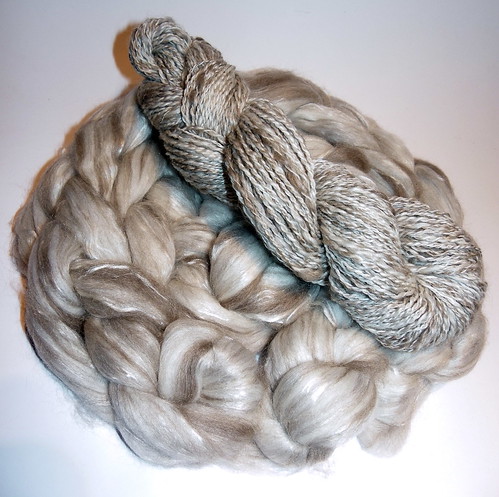
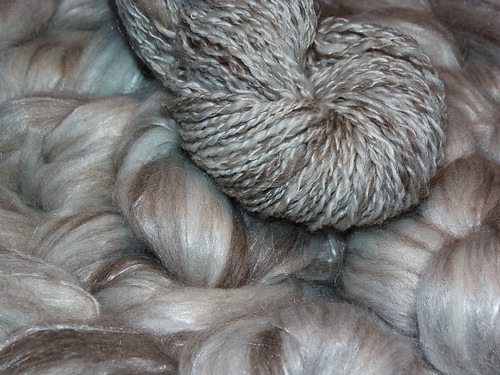
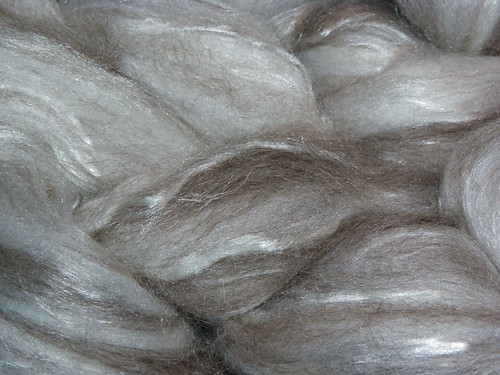 Natural TUNDRA tops
Natural TUNDRA tops
I also have 4 ply/fingering weight handspun yarn available.
PM me for more information if you are after the handspun yarn
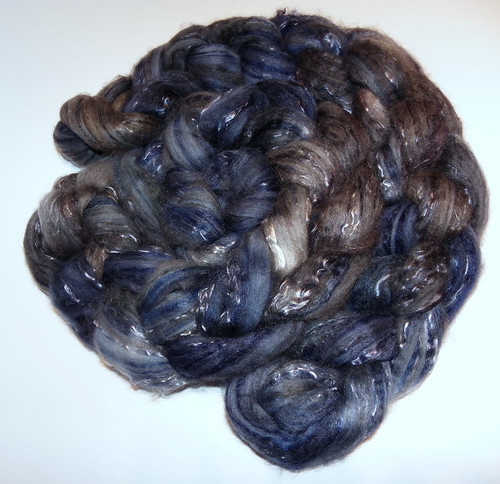
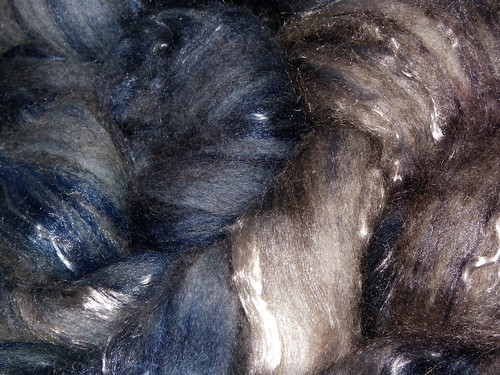 Be Here Now-sold-
Be Here Now-sold-
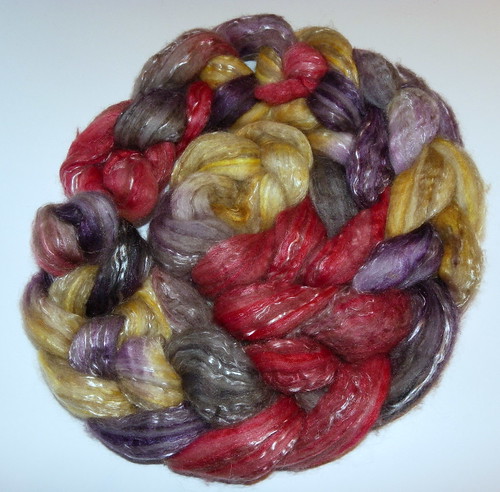
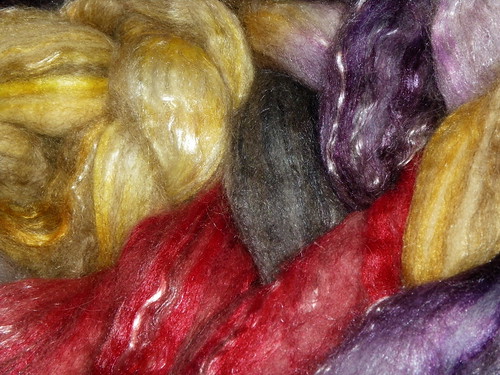 Champagne Supernova-sold-
Champagne Supernova-sold-
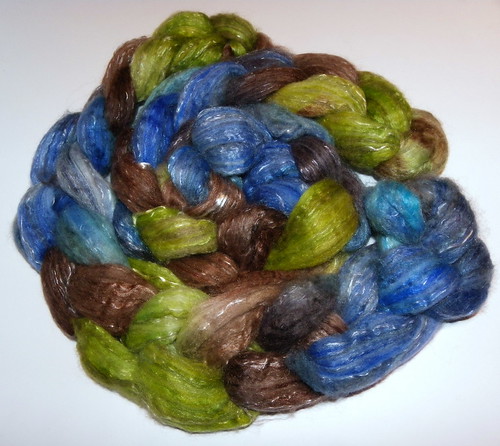
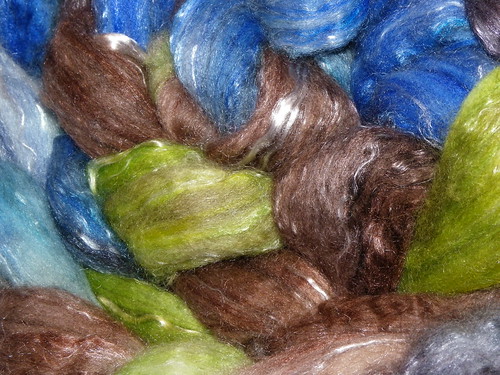 Don’t Look Back In Anger-1 left-
Don’t Look Back In Anger-1 left-
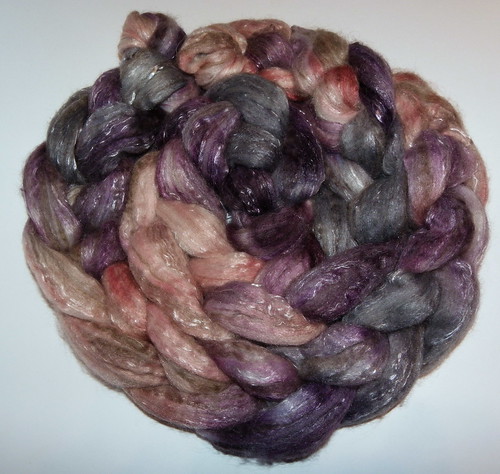
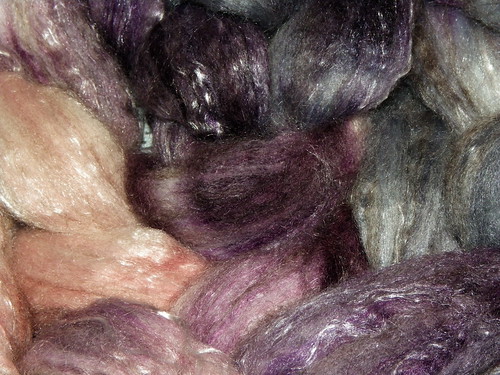 Half The World Away-sold-
Half The World Away-sold-
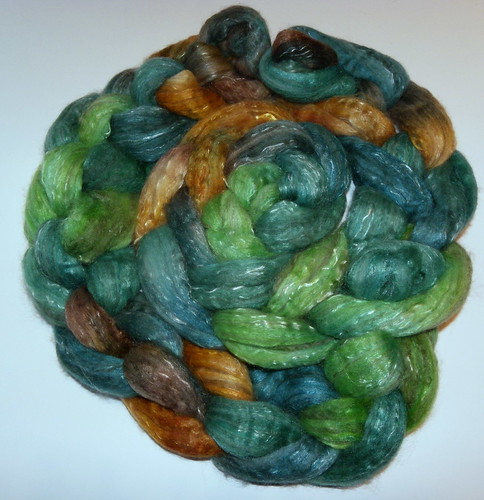
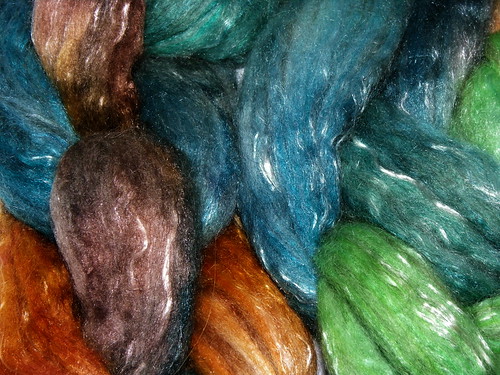 Masterplan-sold-
Masterplan-sold-
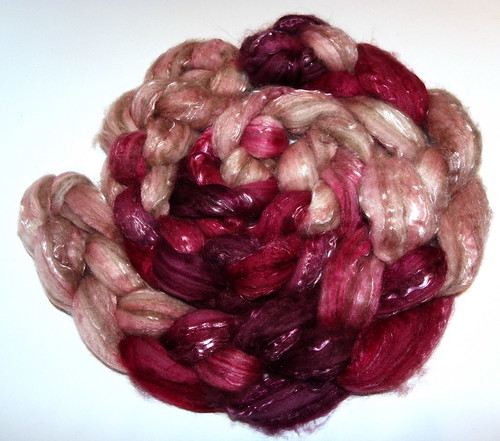
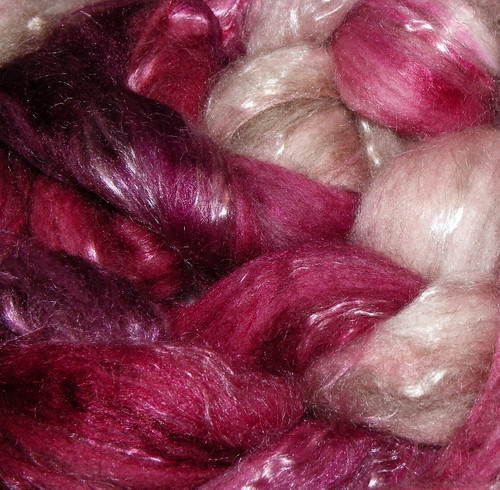 Roll With Me-sold-
Roll With Me-sold-
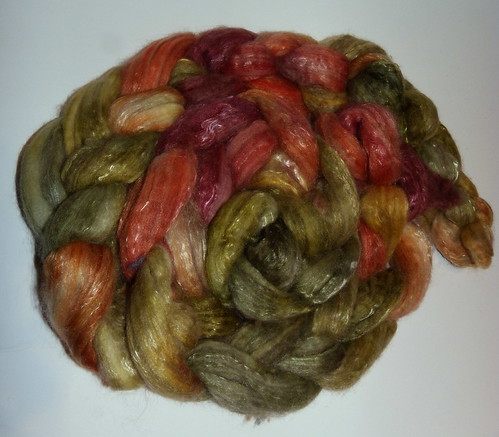
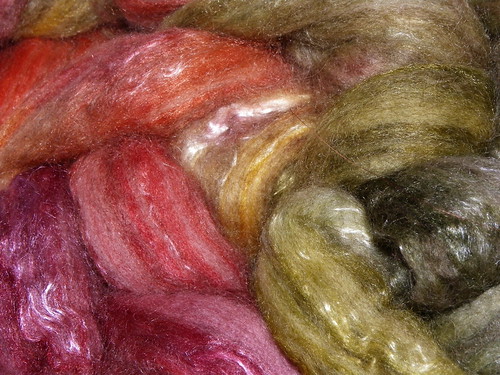 Songbird-sold-
Songbird-sold-
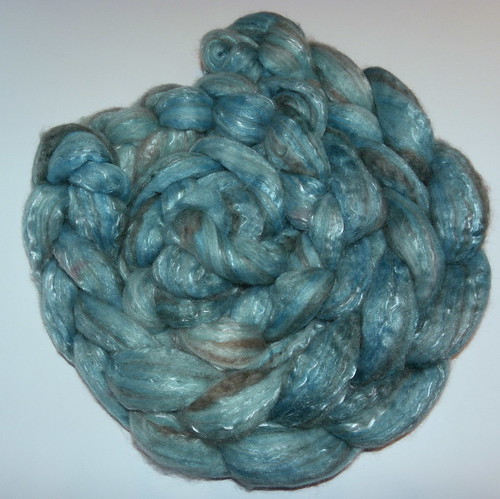
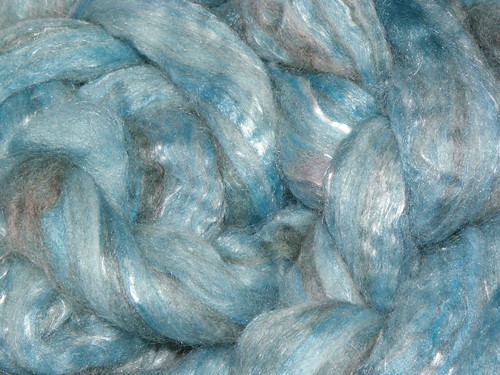 Supersonic
Supersonic
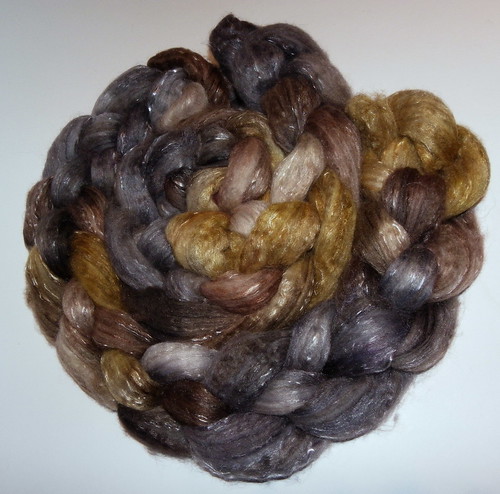
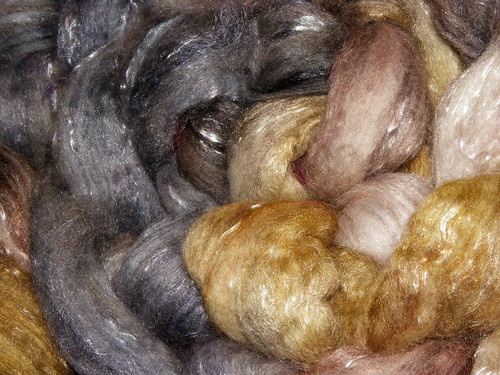 Tim Tam Slam-SOLD-
Tim Tam Slam-SOLD-
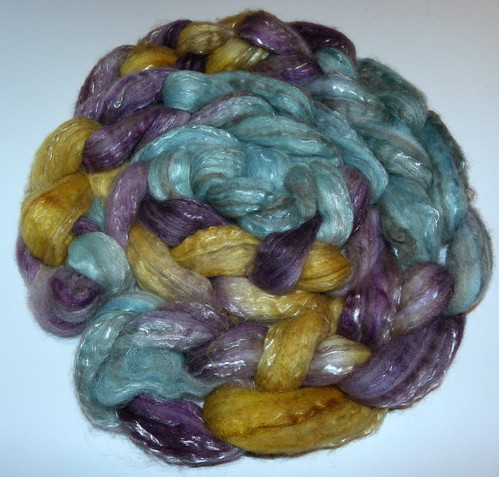
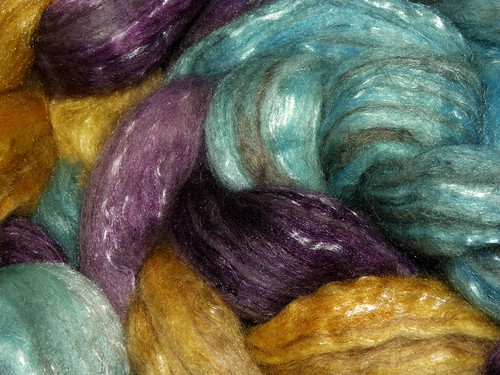 What’s the Story Morning Glory-sold-
What’s the Story Morning Glory-sold-
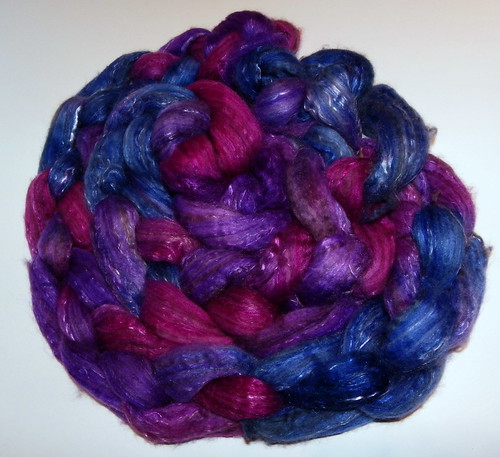
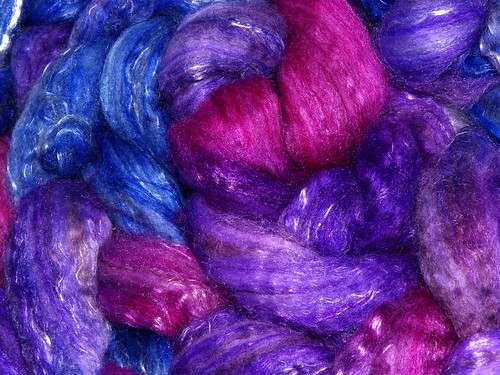 Wonderwall-sold-
Wonderwall-sold-
Healesville spinners talk ..date to be confirmed later
Grandvalley Spinners and Weavers Spin in
Tapscott Hall, Corner Cambridge and Montrose rd, Montrose

Only a small amount available so please don’t wait too long for this amazing blend that spins like butter !
So, here it is: a Qiviut blend to cuddle up to tonight and ofcourse the club sign ups are open , although I must say that the funky bunny batt club is almost on the brink of being tot ally full !! so don’t wait too long to sign up !
Have a fun weekend with lots of fibre play and love!!
Have a fun weekend with lots of fibre play and love!!
Please don't hesitate to contact me at any time if you have any questions okay? Always happy to enable. All my contact details are to be found at the end of this week’s blog entry. Have fun !!!
New IxCHeL Club sign ups are now open!
for the months : April, May and June 2016
for the months : April, May and June 2016
(til quotas are reached or until March 31st)
For all our international club fans there is a possibility to ship all three clubs together to save on postage if you want :-) Just pm me and enquire about the options available.
IxCHeL Fibre Club April, May and June 2016
The subscription is for a period of three months and you will receive one special hand dyed top/roving per month to the value of AU$24 or more
All the tops will be hand dyed and will be especially made for the members of Ixchel Fibre Club !
Price to join the IxCHel Fibre Club #28 and receive your special hand dyed top :)) for three months (January, February and March 2016) is AU$72 + postage (parcel post or airmail). AND there are good value double serves available !!!
For Australia : single serve $72+$28 postage (parcel post), double serve $136+$28 (save $8) or triple serves $204 (save $12!) + postage
For USA + Canada: single serve AU$72+AU$51 (Airmail) double serve AU$136+AU$51
For UK,Europe, rest of the world: Single serve AU$72+AU$60 (airmail) Double serve AU$136+AU$60
For Asia: Single serve AU$72+AU$45 (airmail) Double serve AU$136+AU$45
If you want to receive a fibre surprise every month then join the IXCHEL FIBRE CLUB #28 now. Numbers are strictly limited ! The April 2016 Club is going to be shipped out end of April. Payment via direct deposit or credit card or paypal. Just PM or email me your details
The IxCHeL Sock Yarn Clubs April, May and June 2016
Every month for three months (April , May and June 2016) you will receive: enough hand dyed luscious yummy yarn to make a pair of socks or a lush shawl or scarf ofcourse! (the hand dyed yarn will be exclusive for the Ixchelbunny SOCK-IT-TO-ME Yarn CLUB and will range from a sockweight yarn or a 3ply or a 4 ply); Every month a new sock pattern, tips and instructions ! Now is that GOOD or is that GOOD ??!
I will even offer a double serve for those of you who like their socks extra long !
For Australia : single serve $78+$28 postage (parcel post) double serve $130 (= one skein FREE!!!) +$28
For USA + Canada: single serve AU$78+AU$51 (Airmail) double serve $130 (= one skein FREE!!!) +AU$51
For UK,Europe, rest of the world: Single serve AU$78+AU$60 (airmail) Double serve $130 (= one skein FREE!!!) +AU$60
For Asia: Single serve AU$78+AU$45 (airmail) Double serve $130 (= one skein FREE!!!) +AU$45
Numbers are strictly limited !
Payment via direct deposit or credit card or paypal . Just PM or email me your details
By the way: you don’t HAVE to knit socks if you don’t want to.. the hand dyed yarn is amazingly nice for scarves, cowls, beanies and even tops ! Anything goes .
IxCHeL Funky Bunny Batt Clubs April, May and June 2016
Here are all the details and just pm me when you have any questions or want to be part of the funky bunny batt club Movement ;-) Welcome to the blingy dark side ;-D
The subscription is for a period of three months and you will receive one special hand dyed funky bunny batt per month to the value of AU$40 or more .
The batts will range in weight from 140grams to 180grams with luxury fibres like camel , angora, cashmere, silk, yak, llama even wolf and bison and rare sheep breeds !!!! All the batts will be hand dyed and will be especially made for the members of Ixchel funky bunny Club ! Every month you will receive a HUGE luxury funky bunny batt !
Sign up now and you will receive an Ixchel Hand dyed , super luxurious funky bunny batt for April, May and June 2016.
Price to join the Ixchel Funky bunny for three months is :
For Australia : $108+$28 postage (parcel post)
For USA + Canada: AU$108+AU$51 (Airmail)
For UK,Europe, rest of the world: AU$108+AU$60 (airmail)
For Asia: AU$108+AU$45 (airmail)
If you want to receive a fibre surprise every month then join the IXCHEL FUNKY BUNNY BATT CLUB now. Numbers are strictly limited ! The first installment is going to be shipped out end of April :) Payment via direct deposit or credit card or paypal. Just PM or email me
TUNDRA Tops
25% Qiviut, , Mulberry silk, Angora bunny, Cashmere, Superfine 15micron merino and Tencel
50+gram tops AU$25
Even more luscious to spin and wear than last week’s fibre offering !
50+gram tops AU$25
Even more luscious to spin and wear than last week’s fibre offering !


 Natural TUNDRA tops
Natural TUNDRA tops I also have 4 ply/fingering weight handspun yarn available.
PM me for more information if you are after the handspun yarn

 Be Here Now-sold-
Be Here Now-sold-
 Champagne Supernova-sold-
Champagne Supernova-sold-
 Don’t Look Back In Anger-1 left-
Don’t Look Back In Anger-1 left-
 Half The World Away-sold-
Half The World Away-sold-
 Masterplan-sold-
Masterplan-sold-
 Roll With Me-sold-
Roll With Me-sold-
 Songbird-sold-
Songbird-sold-
 Supersonic
Supersonic
 Tim Tam Slam-SOLD-
Tim Tam Slam-SOLD-
 What’s the Story Morning Glory-sold-
What’s the Story Morning Glory-sold-
 Wonderwall-sold-
Wonderwall-sold-Dates to put in your Calendar !!
March
Healesville spinners talk ..date to be confirmed later
April 18th
Monday 10am-2pm
Grandvalley Spinners and Weavers Spin in
Tapscott Hall, Corner Cambridge and Montrose rd, Montrose
May
Date to be confirmed later
Victorian Hand Knitters Guild Show
Coburg Town Hall
THE extra ordinary super fluffy yarny event in Melbourne !!!
I will be there with lots of hand dyed tops for spinning and felting and happy rainbow yarn and sock yarn, some extra special art yarns and much much more!!!! As well as some amazing Lair of the Bearded Dragon spindles and bowls that are pure magic to spin with !
JULY
Friday July 15th- Sunday 17th, 9am-5pm
Bendigo Sheep and Wool Show
THE event of the year !!!! Not to be missed!! I will be there in the Flower (Power Bunny) Shed again with heaps of new goodies, hand dyed and hand spun, IxCHeL new blends and rare sheep breed adventures and much much more ! Including a world first of something AMAZING AND FUN!!!!! Shhh not telling ! but it is AWESOME !!!!
August
Date to be confirmed
Black n Coloured Sheep Show in Cranbourne
Landscape dyes
100g tubs AU$11
Want to dye your own with easy to use acid dyes? I have been selling these Landscape dyes at my workshops and shows for a long time, just never thought to put them on my blog.
They are extremely easy to use and come in great shades.
Just contact me with the name of the colour you are after and I will get right back to you.
They are extremely easy to use and come in great shades.
Just contact me with the name of the colour you are after and I will get right back to you.
Have a creative week!
Please don't hesitate to contact me at any time if you have any questions okay? Always happy to enable.
All my contact details are to be found at the end of this week’s blog entry.
Have fun !!!
How To Order:
1. You can email me on ixchel at rabbit dot com dot au or ixchelbunny at yahoo dot com dot au
2. message me on facebook or ravelry where I am Ixchelbunny.
I will email you right back with all your order details and payment methods.
Any questions? Any custom orders for yarn or dyeing fibre? Please don’t hesitate to ask! Always happy to enable.
2. message me on facebook or ravelry where I am Ixchelbunny.
I will email you right back with all your order details and payment methods.
Any questions? Any custom orders for yarn or dyeing fibre? Please don’t hesitate to ask! Always happy to enable.
Thank you so much for your help and support !
RABBIT ON !
((hugs))
Charly

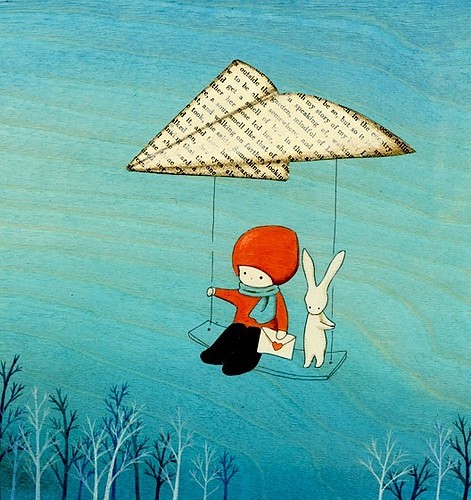
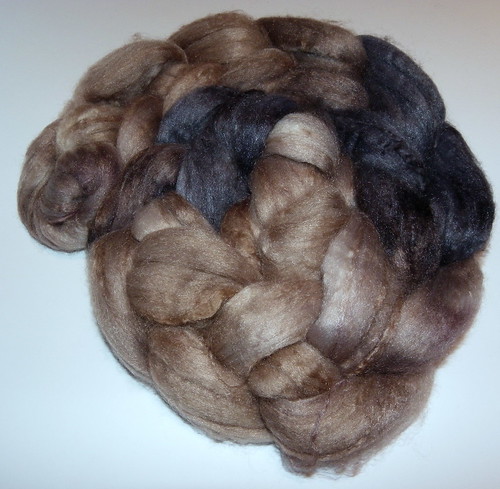
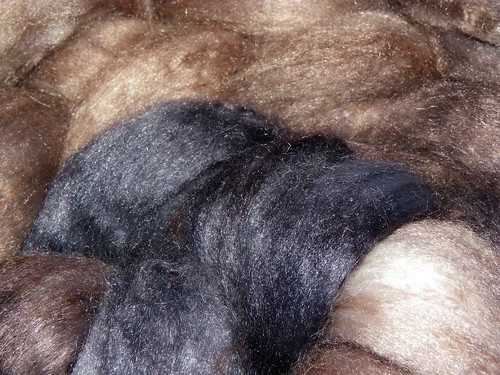 Zen-sold-
Zen-sold-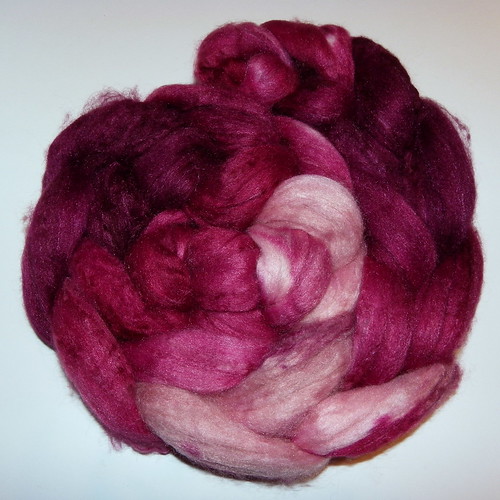
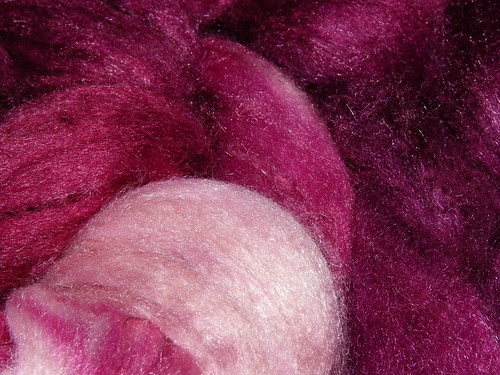 Velvet Affair-sold-
Velvet Affair-sold-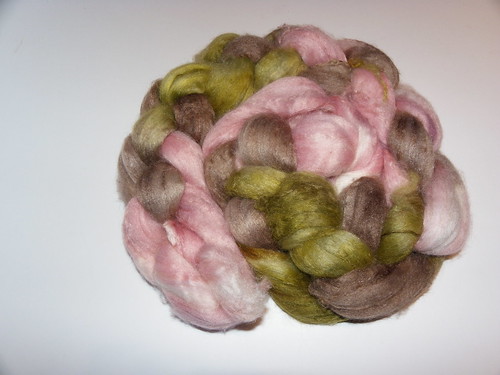
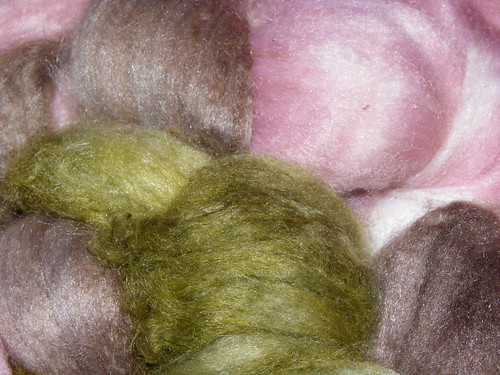 Summer Heather-sold-
Summer Heather-sold-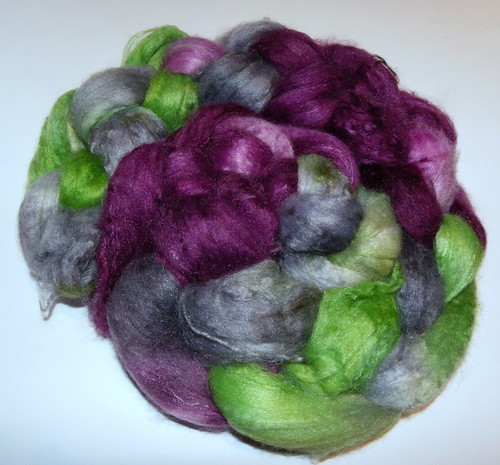
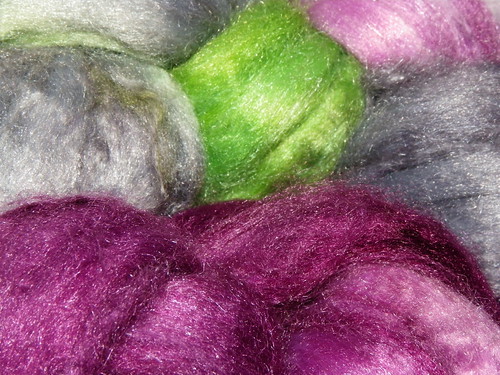 Romeo and Juliet-sold-
Romeo and Juliet-sold-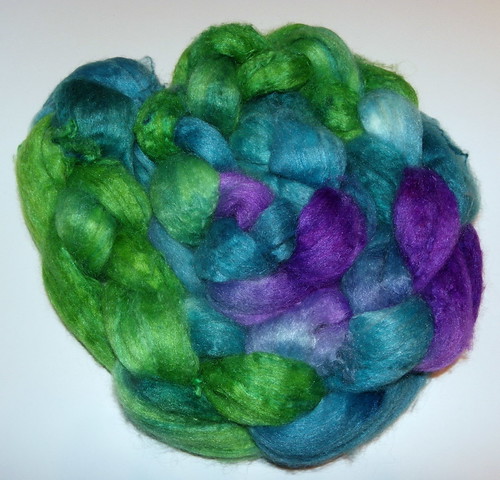
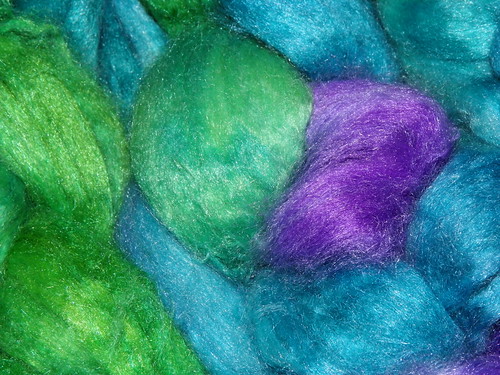 Peacock-SOLD-
Peacock-SOLD-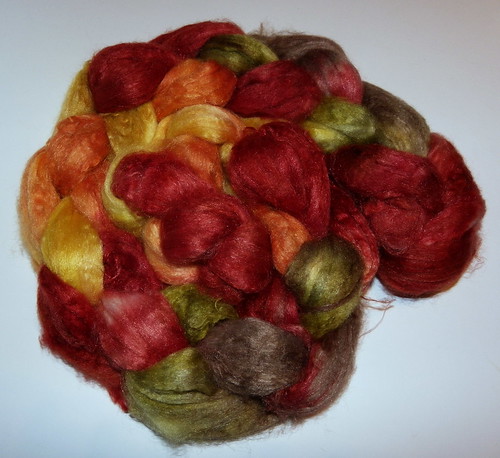
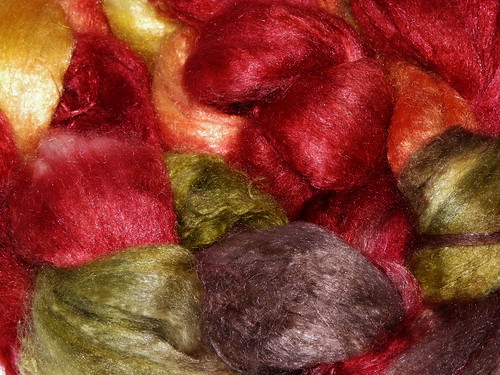 Outback Sunrise-sold-
Outback Sunrise-sold-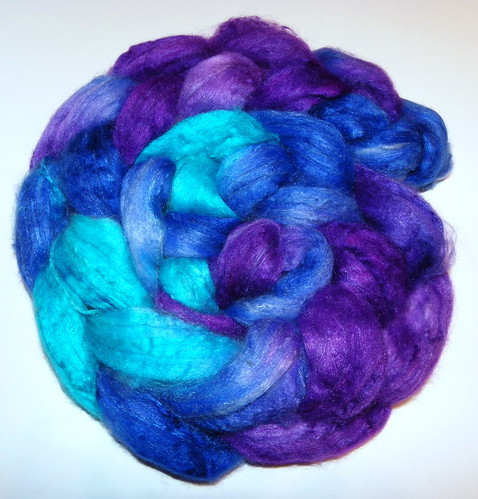
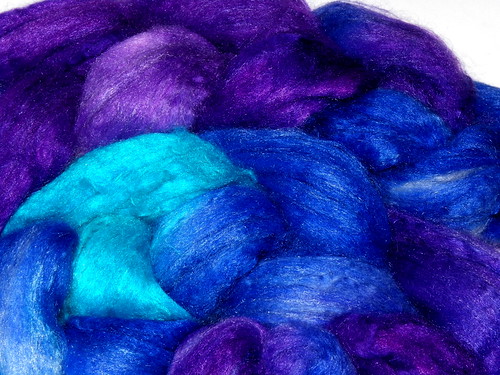 Orchid-SOLD-
Orchid-SOLD-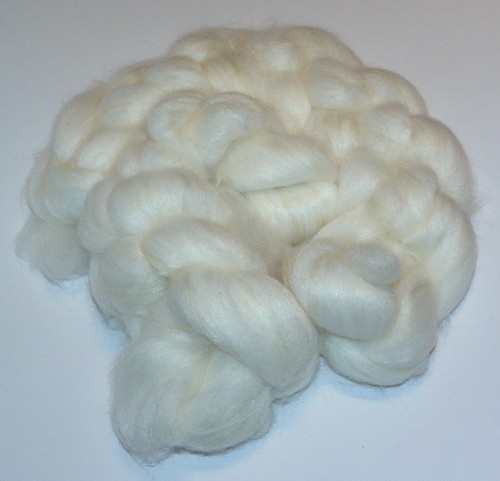
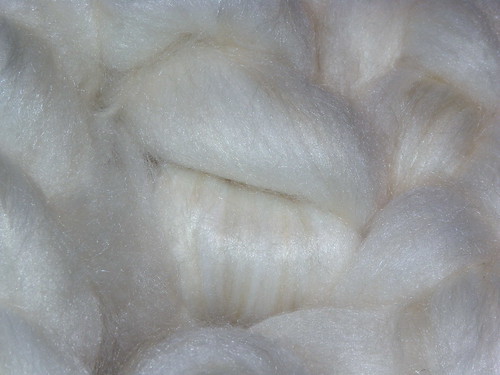 Natural-sold-
Natural-sold-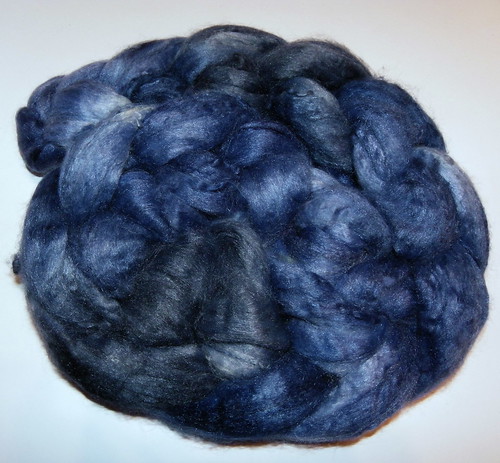
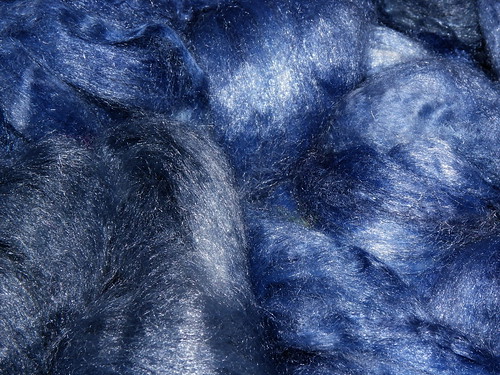 Indigo Dreams-sold-
Indigo Dreams-sold-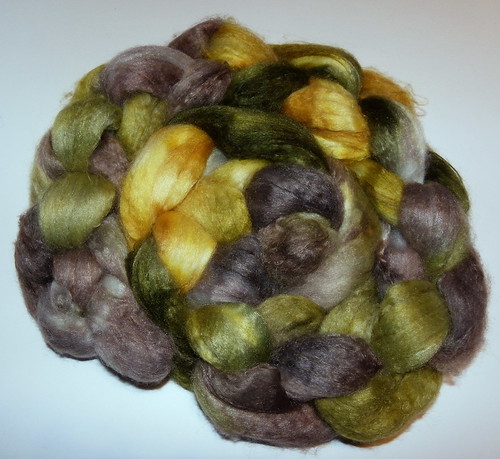
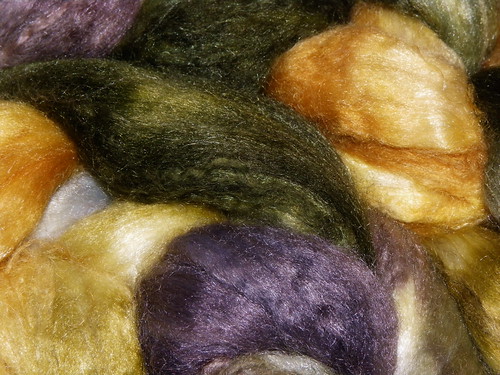 Honey Forest Dew-sold-
Honey Forest Dew-sold-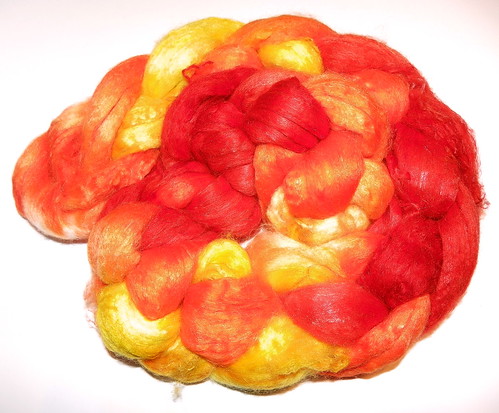
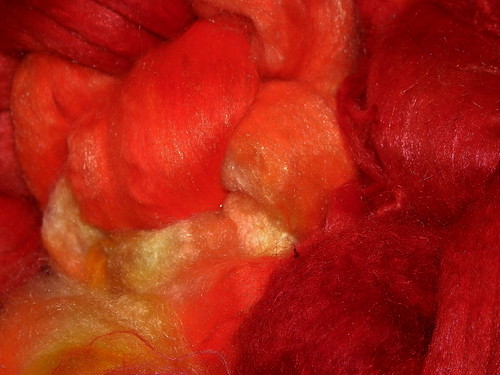 Heatwave-sold-
Heatwave-sold-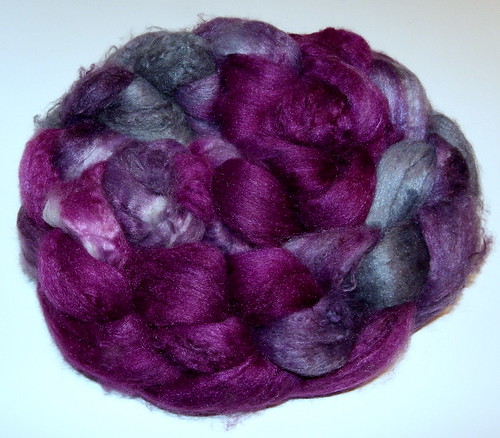
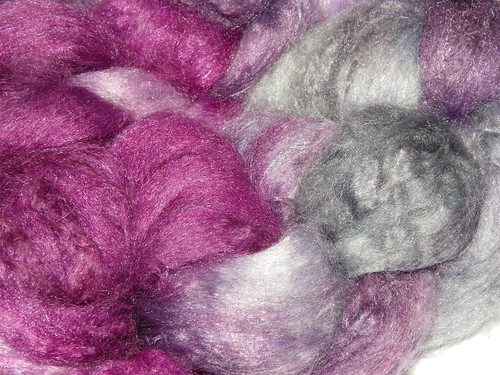 Gothic-sold-
Gothic-sold-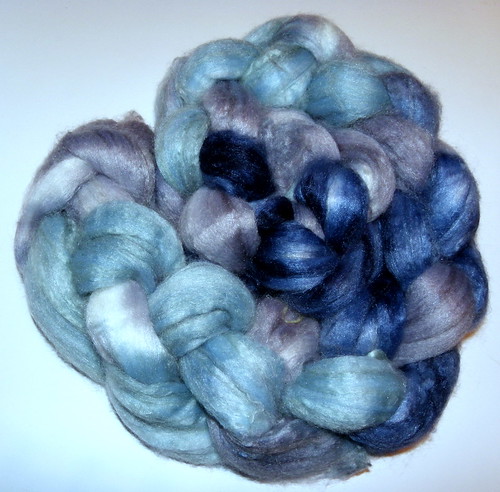
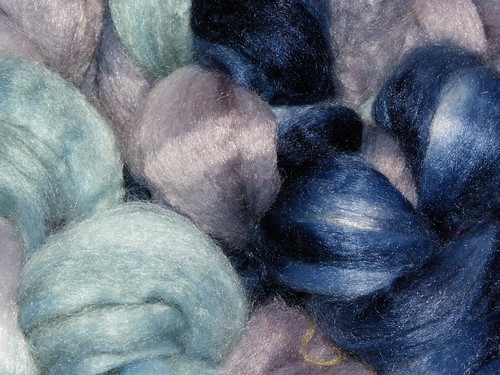 Dolphin Kiss-sold-
Dolphin Kiss-sold-


